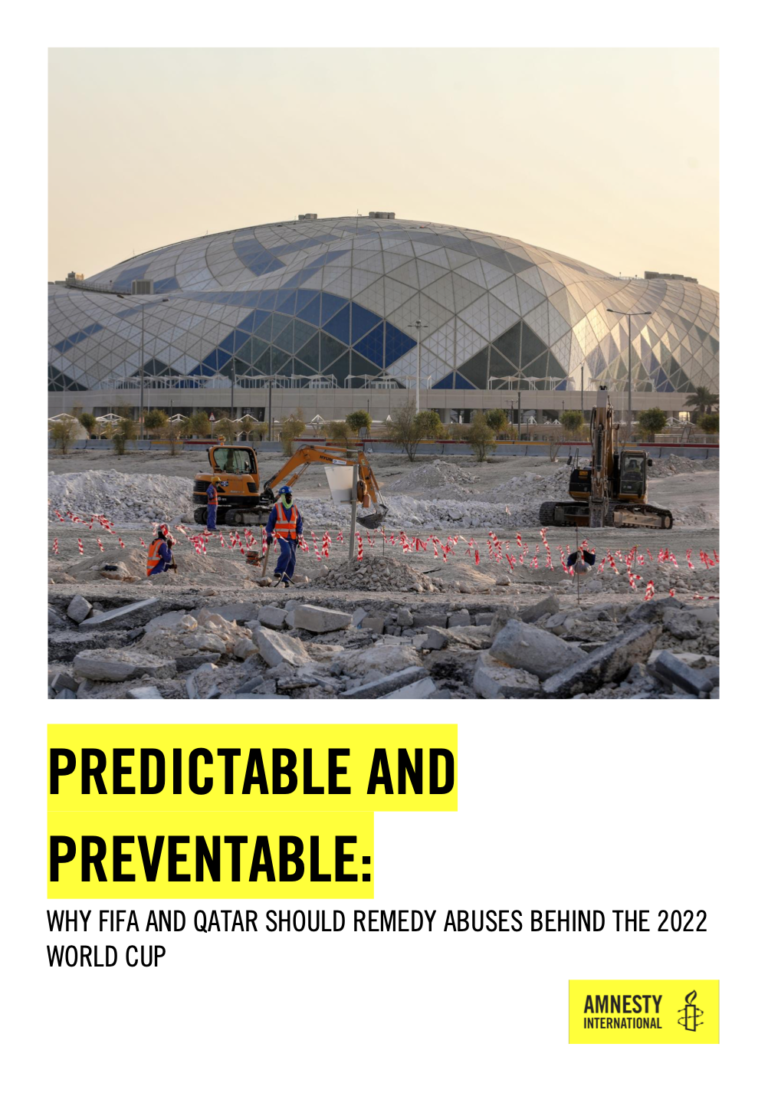When FIFA awarded the 2022 World Cup to Qatar in 2010, the existence of widespread labour rights abuses was well-documented. FIFA knew, or ought to have known, that the monumental construction work and other services required to host the tournament would rest on the shoulders of vulnerable migrant workers at severe risk of exploitation. Yet, despite these warnings, FIFA granted the multi-billion-dollar event to Qatar without imposing on the country any conditions to strengthen labour rights protections. Recognising its responsibilities far too late, and introducing measures benefiting far too few workers, the abuses that followed were both predictable and preventable.

